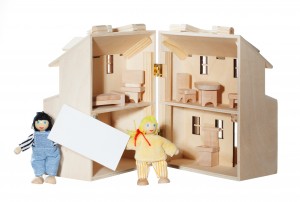Rental Property Insurance: Which Coverage Do I Need?
An increasing number of Americans own rental properties today. Many became “accidental landlords” during the housing bust of the late 2000s because they were underwater with their home mortgage. Others are investors that see an opportunity to capitalize on the relatively low housing prices (and interest rates) to collect assets and build up their net worth. 
Whichever type of landlord you are, the home(s) you are renting will require rental property insurance (also known as landlord insurance). Insuring a rental property is similar to a standard homeowner’s policy, but there are a few differences. Before we get to that, however, it is important to understand how an insurer will define a rental property.
If you have a primary residence or second home that you rent out (or rent a portion of) on a regular basis to different tenants or guests, this is not technically a rental property. Rather, this is a business you are running out of your home. This type of scenario would require a business insurance product such as a bed & breakfast policy.
On the other hand, if you have a property that is rented to the same tenants for an extended period of time (such as a one-year or multi-year lease), ask your agent for a rental property insurance policy. Landlord insurance covers all the basics you would receive with homeowner’s insurance, such as protection against structural damage and liability insurance.
The liability coverage in a landlord policy is a bit different in that it insures against a tenant (or one of their guests) becoming injured on the premises. This is more extensive than a typical homeowner policy that only insures for guest liabilities. Your rental property insurance may also include additional coverage for personal property you may have left with your tenant for maintenance. This would include items such as lawnmowers, snow blowers, and most certainly appliances.
Another coverage that is unique to landlord policies is loss of rental income for the duration of a covered repair to the property. For example, if the home is damaged by fire and the tenants must relocate for six months, your policy will compensate you for the rental income you would have received, so you can continue to pay the mortgage, taxes, and other obligations related to the property.
Rental property insurance will most often carry a higher premium than a standard homeowner policy, but the extra coverages allow you to rest easy as a landlord knowing you are protected against the common scenarios that may arise while you are renting the property. Speak to your insurance agent to set up your landlord policy and ensure that you have a level of coverage you will be comfortable with.




